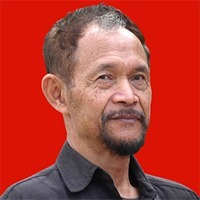Bleak
Tuesday, October 1, 2019
arsip tempo : 171401946789.

There is an anecdote: King Philip of Macedonia captured Diogenes, who came from the shores of the Black Sea, after a battle over neighboring territory. The philosopher Diogenes was thought to be an enemy spy. He confessed: “Yes, I am indeed spying on you—a spy on your insatiable greed."
The gods, he once said, give us life sufficiency but people forget this and search for extravagant things. The beggar philosopher taught moral
...
Subscribe to continue reading.
We craft news with stories.
 For the benefits of subscribing to Digital Tempo, See More
For the benefits of subscribing to Digital Tempo, See More








